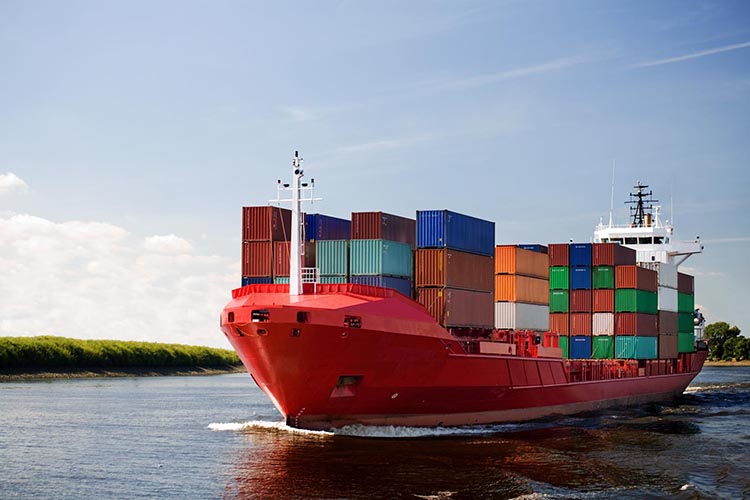
FTZ’ine September 2020
September 1, 2020
FTZ’ine November 2020
November 5, 2020It’s Going To Be A Big Month
Trade was rising in the public eye as the 2020 election progressed. Then the death of Supreme Court Justice Ruth Bader Ginsburg and the release of President Donald Trump’s personal tax returns last month upended the election narrative in Washington. Action this month to confirm a new Supreme Court Justice and examination of those returns are sure to make October an impactful month in a most unusual year.
Tuesday’s Presidential debate had no segments dedicated to trade, which probably confirms that advancements in relations with key trading partners including China, Japan, India and the U.K. have been pushed off center stage for the coming months. It could also be a signal that views on trade are not that different between the candidates, and the current environment for international trade is likely to be stable well beyond election day.
Happy New Year to our readers who are federal employees! Happy new fiscal year that is. FTZ users, don’t forget that means that effective today the MPF minimum increases to $27.23 from $26.79 and the MPF maximum increases to $528.33 from $519.76.
This month’s FTZine banner honors the groundbreaking work of Justice Ruth Bader Ginsburg in the service of her country.

Top Story: Candidates Tip Their Hands To FTZs On Trade
Tech Tip
Since the e214 was released some 15 years ago, many FTZ administrators have taken the approach of isolating positive adjustments on a separate e214, as opposed to including their adjustments on a cumulative e214. This certainly works, and there are some organizational reasons why doing it this way can be useful. Further, some FTZ Management software forces “adjustment only” e214 filing, and automates the separation of adjustments from regular receipts.
If you do manage your positive inventory adjustments this way, be sure to remember that all e214s must be concurred, even those that contain only adjustments. When you have an e214 that contains at least one bill of lading, you get a reminder that you have not concurred in the form of a GO (the dreaded ‘General Order’) warning message. But if there are only “ADJ” bills of lading on an e214, there is no such GO trigger in ACE and no messages received.
CBP officers are able to identify un-concurred e214s, and it is much better for you to be making sure you are doing it rather than be notified by your local Port.
If you have questions about e214 concurrences, or about the new e214 procedures and messages, please send them to us at Info@iscm.co.
Other resources for information regarding the new e214:
ISCM email
FRN “Modification of Test Program Regarding Electronic Foreign Trade Zone Admission Applications”
ACE Foreign Trade Zone E214 Business Process Document
Modernizing e214 Online Admission Process - Phase 2 Release 2 - Information Notice


Foreign-Trade Zones Waiting For The Other Shoe To Drop
The bad news on U.S. – China relations just keeps coming.
Lawsuit Tries To Invalidate List 3 & 4a Tariffs


UK Scores Trade Win With Japan Agreement
FTZ Board Activity
- Xylem Water Systems USA LLC submitted a notification of proposed production activity for additional components of centrifugal and submersible pumps within FTZ 90 in Auburn, New York. MORE
- Eastern Shipbuilding Group, Inc. submitted an application for the expansion of subzone 65A of FTZ 65 in Panama City and Port St. Joe, Florida. MORE
- Amgen Manufacturing Limited received authorization of production activity for pharmaceuticals within FTZ 7 in Juncos, Puerto Rico. MORE
- Janssen Pharmaceuticals Inc. received authorization of production activity for pharmaceutical products within FTZ 26 in Athens, Georgia. MORE
- Schlumberger Technology Corporation, Reslink Product Center submitted a notification of proposed production activity for sand screens and related accessories within FTZ 84 in Baytown and Houston, Texas. MORE
- Golden Pass LNG Terminal LLC received approval for subzone status for its facility as subzone 116E in Port Arthur, Texas. MORE
- Rauch North America, Inc. received the authorization of production activity for non-alcoholic beverages within FTZ 277 in Waddell, Arizona. MORE
- Signature Express Transport, LLC received approval for subzone status for its facility as subzone 98F in Fairfield, Alabama. MORE
- Sager Electronics submitted an application for subzone status for its facility within FTZ 168 in Carrollton, Texas. MORE
- FN America, LLC received authorization of production activity for the disassembly of machine guns within FTZ 137 in Dulles, Virginia. MORE
- Volkswagen Group of America Chattanooga Operations, LLC submitted a notification of proposed production activity for additional components of passenger motor vehicles within FTZ 134 in Chattanooga, Tennessee. MORE
- OFS Fitel, LLC submitted a notification of proposed production activity for optical fiber products within FTZ 26 in Carrollton, Georgia. MORE

Trade was rising in the public eye as the 2020 election progressed. Then the death of Supreme Court Justice Ruth Bader Ginsburg and the release of President Donald Trump’s personal tax returns last month upended the election narrative in Washington. Action this month to confirm a new Supreme Court Justice and examination of those returns are sure to make October an impactful month in a most unusual year.
Tuesday’s Presidential debate had no segments dedicated to trade, which probably confirms that advancements in relations with key trading partners including China, Japan, India and the U.K. have been pushed off center stage for the coming months. It could also be a signal that views on trade are not that different between the candidates, and the current environment for international trade is likely to be stable well beyond election day.
Happy New Year to our readers who are federal employees! Happy new fiscal year that is. FTZ users, don’t forget that means that effective today the MPF minimum increases to $27.23 from $26.79 and the MPF maximum increases to $528.33 from $519.76.
This month’s FTZine banner honors the groundbreaking work of Justice Ruth Bader Ginsburg in the service of her country.

